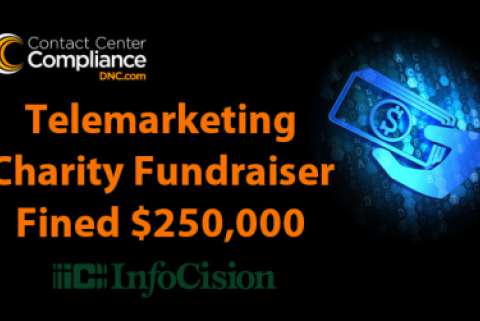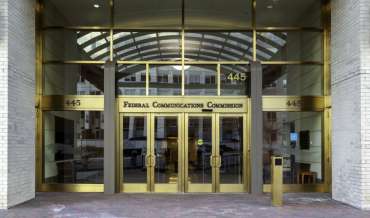The Federal Trade Commission (FTC) asked the Department of Justice (DOJ) to file a complaint against the Ohio based charity and political fundraiser, InfoCision. The company is alleged to have violated the Telemarketing Sales Rule (TSR) by making false or misleading statements that induce consumers to make donations. According to the complaint, InfoCision misrepresented the purpose of calls that it placed to consumers in some of its telemarketing campaigns.
Since 2013, InfoCision conducted hundreds of telemarketing calls on behalf of charitable organizations. They have conducted telemarketing campaigns for many of the largest national charities which include: American Heart Association, ALSAC/St. Jude Children’s Research Hospital, and March of Dimes.
The DOJ alleges that InfoCision told consumers at the beginning of the call that the purpose of the call was not to ask for a donation. However, the telemarketers would then ask consumers to mail or hand-deliver materials to family, friends, or neighbors, asking for money donations to InfoCision’s charity client.
In some cases, according to the DOJ, telemarketers would ask the call recipient to make a charitable donation themselves. Such requests directly contradicted the initial representation that the purpose of the call was not to seek a donation.
COMPLIANCE TIP: The TSR requires that charity telemarketers orally disclose the identity of the charitable organization on whose behalf they are calling and that the purpose of the call is to solicit a charitable donation, clearly and promptly in outbound solicitation calls.
Along with the complaint, the DOJ also filed a proposed stipulated order settling the litigation. According to InfoCision, they agreed to the government’s settlement demand to avoid a lengthy court battle.
“We feel strongly the investigation had no merit whatsoever. The agency never
produced a single consumer complaint or even suggested that consumers
actually had been confused." – InfoCision, Chief of Staff Steven Brubaker
According to the settlement, InfoCision agreed to pay $250,000 in civil penalties. Additionally, they are prohibited from making misleading statements that encourage charitable donations and must comply with the TSR going forward. The order also includes the standard recordkeeping and monitoring provisions commonly found in FTC stipulated judgments.
This case is a wakeup call for call centers. The filing of the complaint by the DOJ reinforces the importance of TSR compliance for telemarketers who call consumers on behalf of charitable organizations.
TSR Prohibitions on Charitable Solicitations
Remember that TSR provisions apply to solicitations made by call centers on behalf of non-profit clients. When making calls, consider that it is a violation of the TSR to misrepresent:
- The nature, purpose, or mission of the charity on whose behalf the call is made;
- That any charitable contribution is tax deductible in whole or in part;
- The purpose for which a monetary contribution to the charity will be used; including not only how a donation will be spent, but also the locality where the direct effect of the donation will be felt;
- The percentage or amount of any monetary donation that will go to a charity or a charitable program. Though, disclosure is only required if a potential donor raises the question to which you must answer truthfully and not misrepresent this information.
While the FTC continues to aggressively pursue alleged TSR violators, charity fundraisers need to be well advised of the rules and enforcement landscape before initiating a telemarketing campaign.
One way of ensuring compliance with all federal and state telemarketing regulations is to work with a respected compliance provider such as Contact Center Compliance. Protect your business by using services such as:
- Exemption Master
This online tool identifies which states you can claim an exemption in against the various regulatory requirements and summarizes the licensing fees and overall regulatory requirements for all states that you do business in.





